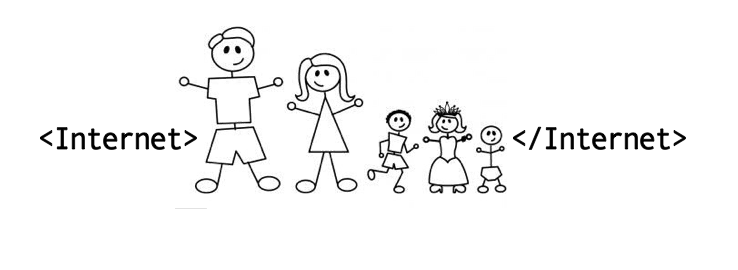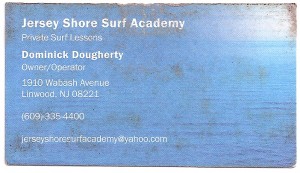That’s right, parents are the driving force behind the Internet. I don’t mean end users, I mean those who are creating, building and managing the sites, applications and companies that power the Internet.

Web 1.0
15 years ago a bunch of young visionaries and entrepreneurs developed new businesses and companies that would change the way we get news, do research, communicate and purchase goods and services. It was the wild west of business and I was lucky to get in on the tail end of that era.
Web 1.0 was about youthful exuberance. Many spent like drunken sailors and the stories of excess are legendary. Nearly everyone in the industry was young and it didn’t seem like we had to conform to the way anyone else conducted business.

People lived to work and often slept at work. Kitchens were stocked with free soda and munchies. There was no dress code. We shot Nerf guns at each other, rode around in the office on Razor scooters, got good at foosball and relaxed in our comfy Aeron chairs. Companies grew without the aide of a business plan. We counted our options and talked about what number we were in the company.
Po Bronson captured the time in The Nudist on the Late Shift.
The Nudist on the Late Shift came out at the height of the great social experiment – dot com fever, summer of 1999. Amazingly, it still stands the test of time, being the definitive portrait of that crazy place and time in our modern history, when all the rules were rewritten. My classic piece is the first chapter, The Newcomers, which was inspired by the works of Joan Didion, Upton Sinclair, and John Steinbeck, who chronicled other great migrations to California. From 1996 to 2000, almost 400,000 young people moved to the Bay Area from elsewhere to seek their fortune and fate in the internet industry …
It was the era of WebVan, Pets.com and Kozmo. (Ah, Kozmo how I miss thee!) In retrospect it was a lot like college.
The Nuclear Winter
Then the bottom dropped out of the Internet. Reality reared its head and the party was over. The dot com crash, or dot bomb if you like the nuclear winter metaphor, was a wake up call. Suddenly we were the butt of jokes. We finally got our comeuppance!
Thousands of us pulled the cord and found work in other areas and industries. It had been fun but it was time to grow up and start a ‘real’ career. But others stuck around – those of us who thrive on the edge of business. Those who like the chaos and can stomach the ups and downs of the roller coaster. We still saw promise in the Internet. We’d make it work.
By the end of the nuclear winter the fraternity of Internet colleagues was relatively small. Yet, we were well placed when the Internet rose from the ashes. We’d amassed a wealth of experience and learned from our mistakes.
Web 2.0
Something else happened when the Internet returned from the grave. We were in our thirties. Many of us who stuck around had started families. We matured. As any parent will tell you, your view on life and your priorities change once you’re a parent.
We became more fiscally responsible and that translated into the way we ran new start-ups. Excess was out. Making your dollar go farther was in.
The idea of living at work disappeared. Flexible hours became widely accepted and more and more found they could get just as much done working at home. We had kids and we wanted to be there for them. (Or we were made sick by them!)
It was about efficiency and output. It was about time-shifting. Just like TiVo, we’d pause work until later in the evening and then catch up with email.
We understood failure and that tempered our ego. (Tempered mind you, many of us still have big egos.) Our conversations were no longer about Burning Man, they were about elementary schools.
Parents Drove Innovation?
Think about the innovations in the last few years. How much of it was influenced by the fact that those creating it were parents? Parents want to be untethered from work, to time-shift, to document and to reminisce.
Mobile applications allow us to be elsewhere but still be connected. I can be at the playground with my daughter but still stay on top of any pressing matters via my phone. Add lighter more powerful laptops and wifi and suddenly I can go anywhere and still be ‘in the office’.
RSS and other feed based applications let us digest news on our own time.
Social Networks let us connect and interact with others without the time sink of meetings. LinkedIn makes it easy to network – something we learned was more important then we thought. Facebook lets us connect with old friends but only at arm’s length. No awkward coffee store meet ups, thank you very much.
Blogging lets us document our life and our passions. Could the need for self-expression, to keep your own identity as a person, and as a parent, be part of the reason blogs took off?
Is microblogging a way to do the same but a reaction to an infringement on our most precious resource – time? Is the rise of real-time blogging of conferences a way to optimize our information and time balance?
Are the rise of photo and video applications and platforms due to the desire to document our families? Flickr photo albums of first steps sent to family members near and far. The Flip Video Camcorder that lets us put all those dance recitals on video and share them with the world.
Really, why exactly are kids show mashups so popular?
Parents Run the Internet
The Internet has evolved and matured in parallel with those innovators who flocked to it in the mid-to-late 90s. It should come as no surprise that parents now run the Internet.



